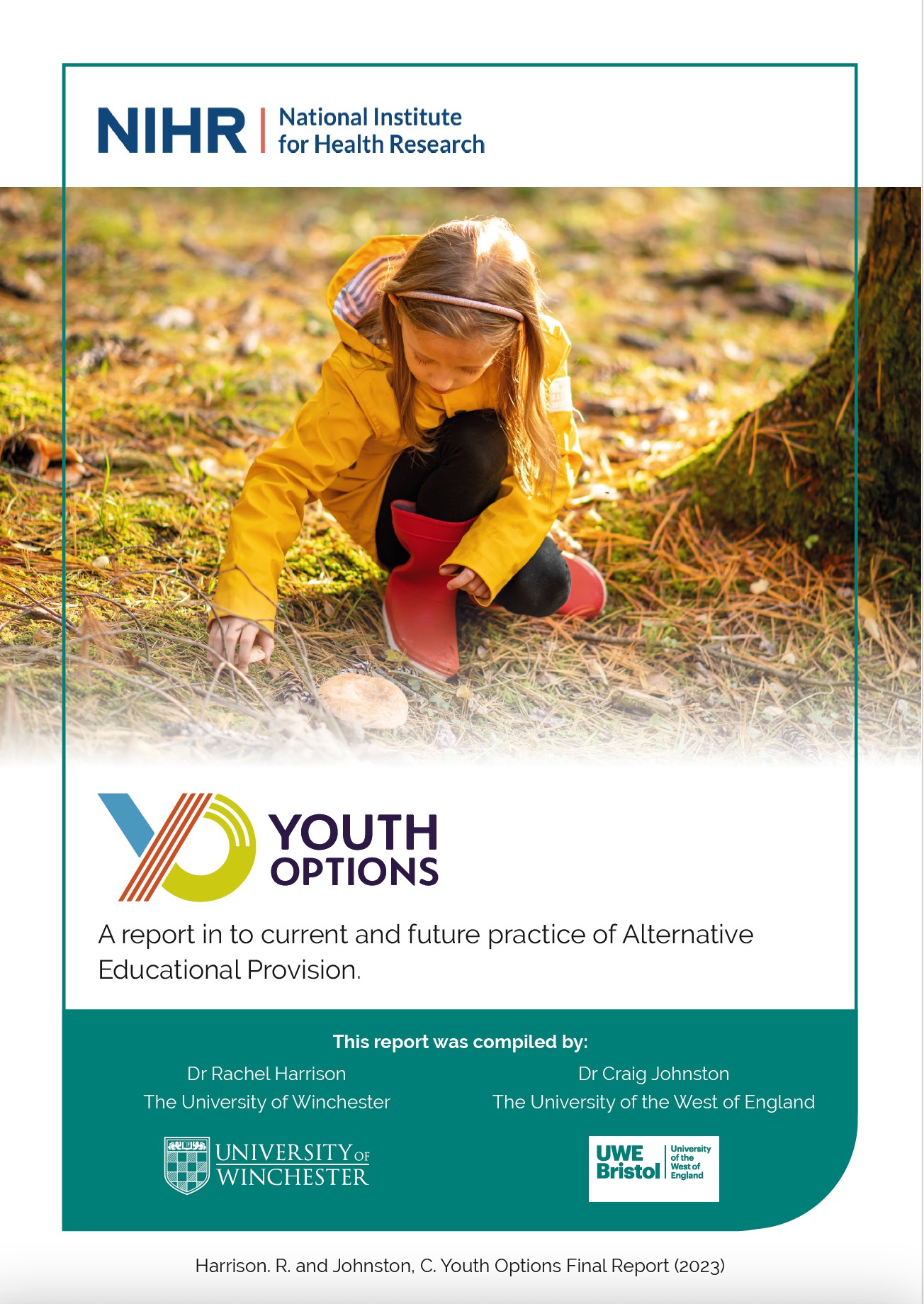
A charity which provides alternative education opportunities for disadvantaged young people in Hampshire has praised a new study into its work by academics at the University of Winchester.
Faced with ‘erratic’ funding streams that put their services at risk, Youth Options commissioned Dr Rachel Harrison, Senior Lecturer in Health and Social Care at Winchester, to look at the strengths and weaknesses of the organisation.
The result has been praised by the charity for helping to “improve our impact” and deliver “better outcomes for children and young people”.
Dr Harrison’s report, co-authored with colleague Dr Craig Johnston, who has since moved to the University of the West of England, focuses on “what works” in creating a legacy, encouraging behavioural change, and increasing educational engagement of children and young people.
In 2022 Youth Options worked with more than 3,500 youngsters across a range of services and activities. Key to its offering is access to nature via its outdoor learning centres.
The researchers conducted Interviews looked after children and young people, others with Special Educational Needs, Youth Options staff and head teachers.
Research found that Youth Option Projects delivered “vibrant, attractive experiences to a diverse range of disadvantaged young people”.
The report also stated: “Projects developed their educational legacies using methodologies which ensured that a range of activities were offered which were accessible and affordable. “Activities were organised and delivered in a caring way using a supportive relational style. These characteristics helped to ensure that all Youth Options sites met and exceeded their participation goals.”
Praise for the service from young people interviewed included:
“I just feel like I'm a good boy when I come here.”
“I’ve realised school’s a lot easier when you’ve got friends.”
The Report and Good Practice Guide produced as a result of the research provides practical suggestions for planning, marketing and recruitment, location, activity type, staff and leadership, retention of children and young people and of staff, progression of children and young people and staff and the development of volunteering opportunities.
Dr Harrison and Dr Johnston hope the guide could be used by other similar organisations across the country.
The report was funded by the National Institute for Health and Care Research Clinical Research Network Wessex (NIHR CRN).
Madeleine Durie, CEO of Youth Options told NIHR CRN: “To have a university-led research project carrying out that research has been invaluable and will not only help our own improvements but also help other organisations working with Looked After Children to consider how they deliver their services.”
She praised the authors’ professional and sensitive approach to the subject and added: “Their research and professional experience of the needs and challenges of these young people was essential to making this project successful.
“The collaboration between our charity and the University, thanks to this funding, will extend beyond this particular research project and help us to continue to improve our impact and ultimately better outcomes for children and young people.”
Dr Harrison said: “Working creatively to build trusting relationships is key to reaching, hearing and valuing seldom heard voices. We were delighted to work in co-production with Youth Options, to learn from them and to help them to continue to make such an important difference in the lives of these children and young people.”
The report can be read in full here
Back to media centre